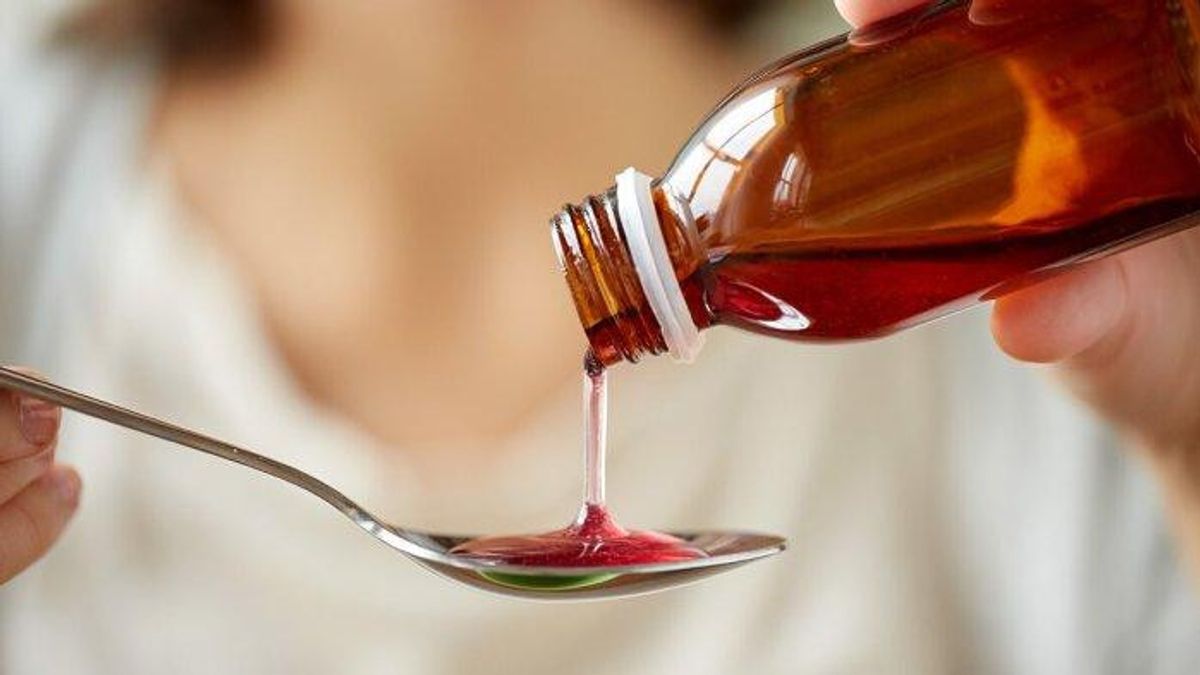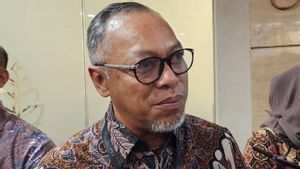The trend of cases of acute acute kidney disorders in Indonesia continues to increase. Data from the Ministry of Health stated that initially there were only 4 cases in the first quarter of 2022. Then an increase of 8 cases in the second quarter, 119 cases in the third quarter, and 110 cases in October 2022.
"This means that during the January-October 2022 period, there have been 241 cases of acute kidney problems in Indonesia that occurred in 22 provinces. A significant increase began to occur in August 2022," said Health Minister Budi Gunadi Sadikin at a press conference. ) on Friday (21/10).
Of these, 153 cases attacked children aged 1-5 years, 37 cases aged 6-10 years, 26 cases aged less than 1 year, and 25 cases attacking the age of 11-18 years.
The majority of patients, said Budi Gunadi, experienced clinical symptoms ranging from fever, loss of appetite, fatigue and unwell, nausea, vomiting, ISPA, diarrhea, stomach pain, dehydration, to bleeding.
A total of 71 cases were reported to have posthumous symptoms or could not urinate and 40 cases experienced oligaria or decreased the amount of urine. In general, they worsened, after five days, usually decreased drastically so that more than 55 percent or 133 cases died," he said.
So far, the Ministry of Health in collaboration with several other institutions has conducted a number of studies related to the cause of acute kidney disorders. The result, not due to pathogens. This means it's not due to COVID-19 or COVID-19 vaccination.
Based on a pathological analysis conducted on 32 cases as of October 18, 2022, very small was caused by the Human Parainfluenza virus, influenza A, adeno virus, or due to disinfection.
"Seeing the case in Gambia and the release from WHO on October 5, 2022 regarding the cause of acute kidney problems is due to the chemical compounds eutelene glycol and dietilen glycol, we immediately followed it and checked toxicology and biopsy," explained Budi Gunadi.
Checks were made on several patients at Cipto Mangunkusumo Hospital. As a result, more than 60 percent of patients have these two compounds, plus one other chemical compound, namely etylene glycol butil ether.
The three chemical compounds will turn into oxal acid in the body. When it enters the kidneys, oxalic acid will turn into calcium oxalate, such as sharp small crystals.opted with friends at RSCM, confirmed. It turns out that the kidneys were damaged due to calcium oxalate," said Budi Gunadi.
Then, the Ministry of Health conducted a search by visiting 156 patient's homes. This is to find out where the chemical compound entered the body. The officer took several samples of drugs, especially sirop drugs that had been consumed by the patient.
In a provisional conclusion, 102 sirop drugs are known to be a history of treatment for patients with acute kidney disorders.
"Although we don't know yet which drugs are dangerous and which are not, we immediately take conservative policies," said Budi.
Ask all health workers in health facilities not to prescribed drugs in the form of liquid or sirop preparations, too, to ask all pharmacies not to sell sirop drugs to the public. Especially 102 sirop drugs.
"Last night, we invited the Association of Pharmaceutical Companies, the Indonesian Pharmacists Association, pharmacists. From the list of 102 sirop drugs, we classified them again, which ones are very dangerous, moderate, have the potential to be dangerous, very few potentials are dangerous, and are harmless," said Budi Gunadi.
This policy, according to him, is only temporary until the results of the search and research are completed.
Related to that, the Food and Drug Supervisory Agency (BPOM) has also asked pharmaceutical companies to self-test sirop medicinal products.
Because, according to BPOM President Inspector Elin Herlina, it is the responsibility of pharmaceutical companies to provide guarantees for the production and distribution of safe, quality, and efficacious medicinal products.
"We have issued a letter to the leadership and person in charge of the pharmaceutical pharmacy on October 18 to ask for self-test of the raw materials used. Then, report to BPOM, and we give a time limit," Elin said on the same occasion.
As another anticipation, the Ministry of Health has also tried the drug Fomepizole from Singapore as an acute kidney disorder drug. The results are effective.
"We tried 10 patients at RSCM, it turned out that their condition was stable. After being given this drug (Fomepizole), some improved, some stabilized. We want to bring 200 first because one vial can make one person," he said.
Drugs are given through several injections. The price of one vial Fomepizole is IDR 16 million.
"The fee, while it will be borne by the government," said Budi Gunadi.
A number of sirop cough drugs circulating in Indonesia contain polyethylene glycol or additional solvent. Polyethylene glycol is actually not toxic, but poor production quality, can produce contamination in the form of chemical compounds such as eethylene glycol, dietilen glycol, andethylen glycol butil ether.
According to Budi Gunadi, contamination is dangerous. If you look at the label, it definitely doesn't exist because it's not an active ingredient. This is an additional solvent which is very rarely written in active drug compounds.
In certain levels, glycol's ethylene is highly toxic, animals or humans who drink the solution can become so sick that it causes death.
Launching the VUMC page, glycol ethylene and glycol dietiles are non-colorable, odorless, and sweet compounds. Ethilen glycol is an individual molecule with the C2H6O2 formula. Meanwhile, dietilen glycol is formed by a combination of two ethylene glycol molecules through ether bonds. It has the molecular formula C4H10O3.
The Ministry of Health has released a list of referral hospitals for patients with acute kidney disorders. If within 1x24 hours the patient does not receive treatment, the health facility must have a referral to a referral hospital examined by the child. The following is a list of 14 child referral hospitals to detect acute kidney disorders:
"People don't panic. For example, if they are sick and confused about what to take, just ask the doctor. We have socialized the protocol for handling acute kidney disorders to doctors and health workers throughout the region," Budi Gunadi emphasized.
The English, Chinese, Japanese, Arabic, and French versions are automatically generated by the AI. So there may still be inaccuracies in translating, please always see Indonesian as our main language. (system supported by DigitalSiber.id)









